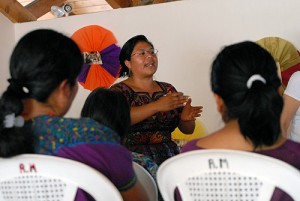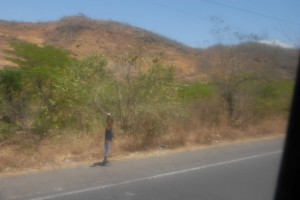What can each of us do?
I have been describing this trip through four countries in Central America as having a theme of what people in the Global North can do to alleviate or reduce poverty. The trip is just finishing, and so I present here some of my thoughts – and some key thoughts from others from whom I have learned during this trip. These are most certainly neither ´the answer´ (Beth!) nor even a final draft of my suggestions. I invite you to comment on this blog and make some suggestions regarding what we in the Global North could do that is efficient, fair, and yet senstive to different cultures.
We need to take poverty seriously. One result of the relatively easy life among the middle and upper class in developed countries, is that many people don’t fully understand the reality of being poor. Somehow, poverty has become something characerized as only a minor problem. We think of food stamps in the US – credits to choose among the wealth of options in (participating) food stores. This is a far more luxurious type of poverty than having to feed one’s family only tiny portions of rice and beans. Or, in Europe and the US, we might think of unemployed workers (whom we hope will soon find employment and be able to buy more books instead of relying on public libraries). Income support provides a cushion, and sometimes the bigger challenge can be the lack of direction when so many job searches turn out fruitless. But poverty can be:
not being able to get your mortally ill child to hospital, because you do not have the USS3.50 bus fare, or
- being chronically malnourished because not all essential nutrients are available in the diet you can afford, and
- having your whole family – including children- working in the garbage dump, picking out shoes you might wear, food that seems still edible, and metal and plastic to be sold for scrap,
- dropping out of fourth grade because you are needed to bring income into your family, and never being able to go back to school.
Okay, so you know the problem, and my giving examples I have encountered during this trip in Central America, may just be flagellating a topic that is tiring to hear. Poverty is tiring. It is tiring to walk an hour to collect firewood because you cannot afford to buy it (or buy gas, or buy a more efficient stove) – and tiring to walk the hour back home with a load of firewood on your head. The proportion of poor people in the world (in 2008) is nearly half -43%- of the world’s population living on less than UD$2 a day (the threshold used by the World Bank to define poverty. Like all thresholds, those above may also be suffering. In many places, living on UD$3 or US$5 a day is no mean feat, either, even if people with such income are not defined as poor.)
You may protest that of course the cost of living is different in various parts of the world. However, in Nicaragua, where one might think the cost of living is low, a cup of coffee in a multinational petrol station shop is US$2, just as it is in Europe. This points to the internal inequality of the societies. In San Salvador, where one neighbourhood was said to be safe to walk in, even at predawn darkness at five in the morning and with a suitcase – and yet the city buses are said to be unsafe even during the day.
So let´s think about solutions.
*Consider working to alleviate poverty in your home place – we don’t need to travel the world to find social inequality. Perhaps the solutions in your home region are different from what is being done by the many projects in Central America.
*Find a project (or more than one) you want to support, and be loyal to it. One person I spoke with, a former nurse who started a local free clinic, described the consistency in dental health projects that started after Hurricane Mitch that are still sending dental delegations to the same regions. Once you find an organization you support, consider helping with ongoing expenses like keeping the electricity on, rather than waiting for a special project.
*Evaluate the real usefulness of the project for the life skills of the participants. For example, I encountered two projects making photography accessible for young people. One focussed on giving them skills, such as portraiture and technical knowledge, which will allow them to develop careers in photography. Another project only had an aim of allowing children to express their creativity. Technical skills were not being given the attention it needed. Photography suffers from its own accessibility: inexpensive ‘smart’ cameras make it easy to ignore that it is a vocation requiring technical knowledge. After thinking about photography for several decades, I have to say that the focussed project is one which develops the children, giving the children skills that could be the basis for a later career. Having the technical knowledge allows them to express their creativity and talent. Only thinking about creativity -and encouraging snapping dozens of photos without planning composition and light- shortchanges the children.
*Talk to your friends and acquaintances about social justice. Our world economic system requires poverty and the poor to produce the goods from which profits are made. It is considered a good business decision to lower costs, incuding labour, while maximizing profits for business owners is valued as a good in itself (justified by investment taking risks). This whole model and the associated values will needs to be restructured if we want to end the misery of extreme poverty.
And it is based on consumption. We know that we are living beyond our planetary means in so many ways, from impact on the earth’s atmosphere to use of rare metals in flat screen TVs. Some of the conflicts reported in the media during my travels were related to projects that might seem sustainable. Oil palm is taking over land use in the Honduran lowlands, replacing pastureland for cattle (protein); the uplands in Guatemala are witness to a number of conflicts on hydroelectric schemes as well as mines; illegal logging is a problem in Honduras and other areas. Consumption and production are two sides of the same problem. Act for simple and sustainable living.



Leave a Reply